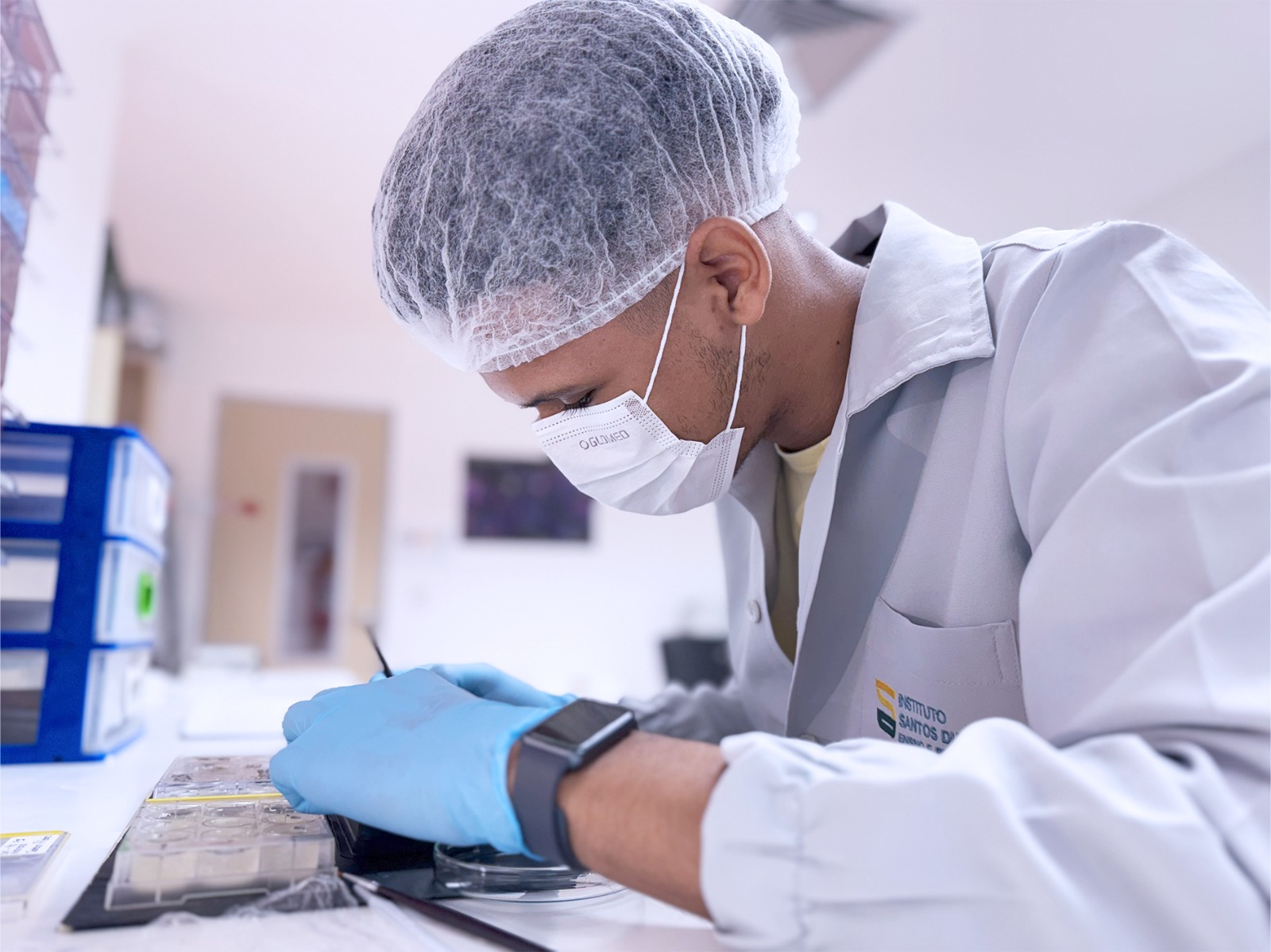When moving to Rio Grande do Norte in 2019 to start a master's degree in Neuroengineering at the Santos Dumont Institute (ISD), in Macaíba, twins from Sergipe Tâmara and Tássia Gonçalves had a common goal: to bring to the population, whether through market or industry, the knowledge acquired through scientific research in the areas of neuroscience and rehabilitation. It was during their master's degree that the biomedical scientists, now 31 years old, came into contact with virtual reality technologies applied to the treatment of paraplegic and quadriplegic patients, created their first company, and were selected for the Centelha startup acceleration program.
Three years later, the sisters' dream of contributing to the market's appreciation of the scientific profession has not changed, and has gained more solid contours. In March 2022, Tâmara and Tássia received the news that they were selected in the call from the National Council for Scientific and Technological Development (CNPq) for the Human Resources Program in Strategic Areas (RHAE). The program aims to support projects that contribute to scientific and technological development, innovation and entrepreneurship in Brazil through the insertion of researchers in innovative companies and startups, in priority technology areas established by the Ministry of Science and Technology (MCTI).
With the notice, the twins will receive R$ 200 thousand, which will be invested in research grants and other costs necessary to develop their newest project, which combines virtual reality, education and health technologies. “We want to develop simulators in which the entire team of healthcare professionals can train techniques that, sometimes, could not be learned during college, for example. This was something we felt during our undergraduate studies, when there was no molecular biology laboratory to train DNA techniques, or when there was a lack of some reagents that were very expensive”, reports Tâmara. “I, for example, wanted to study more in the area of criminal expertise some time ago, but that didn’t exist where I took my course”, he adds.
The idea, however, is to expand the use of virtual reality to several areas, which go beyond education and training of healthcare teams. “Further forward, once the project is successful, what we want is to use it not only for the training of medical teams, but also for the rehabilitation of people”, highlights the biomedical doctor. Currently, they are already developing a simulator to treat some phobias, such as fear of heights, some insects and airplanes. “These are plans for the future, but it is possible to dream about the vast number of uses we can give to these technologies.”
The company will be incubated at the Tiradentes University, in Aracaju, at the Tiradentes Innovation Center, and the project will be developed in partnership with the Edmond and Lily Safra International Institute of Neuroscience (IIN-ELS), one of the ISD units in Macaíba, where the manager of the unit, Edgard Morya, will be the project's promoter. “Their work reveals the various possible paths that researchers and scientists can follow. They acquired knowledge, developed projects and are taking it to society, and the impact of this is very positive for Brazilian science. It is important that more projects can be stimulated so that these ideas multiply and reach more and more people”, says Morya.
“Today, the profession of scientist is fundamental and needs to be more valued by society and the market. One of the things that my sister and I said when starting the master's degree to our advisor was that we really liked Neuroengineering, but we didn't want to leave here with just one published article. We wanted to partner with a company to be able to increasingly foster this ecosystem of generating knowledge and expanding the reach of this information and technologies”, adds Tâmara.
Text: Mariana Ceci / Ascom – ISD
Photograph: assigned
Communication Office
comunicacao@isd.org.br
(84) 99416-1880
Santos Dumont Institute (ISD)
It is a Social Organization linked to the Ministry of Education (MEC) and includes the Edmond and Lily Safra International Institute of Neurosciences and the Anita Garibaldi Health Education and Research Center, both in Macaíba. ISD's mission is to promote education for life, forming citizens through integrated teaching, research and extension actions, in addition to contributing to a fairer and more humane transformation of Brazilian social reality.













